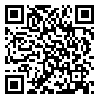BibTeX | RIS | EndNote | Medlars | ProCite | Reference Manager | RefWorks
Send citation to:
URL: http://jcpp.iut.ac.ir/article-1-179-en.html
The main sources of cadmium in soil-plant continuum in amounts that might present a hazard are liquid and solid wastes of sewage sludge, farm manures and fertilizers. In the southwest of Iran (Khuzestan Province) over 50,000 ha of land is under sugarcane (Saccarum officinarum) cultivation and more than 80,000 ha will be under sugarcane by the end of the year 2000. In these sugarcane fields, about 400 kg ha-1 diamonium phosphate (DAP) and 400 kg ha-1 urea are applied annually. There is no data available to show the fertilizers impact on soil, water and plant contaminations in Iran with respect to cadmium. The objective of this research was to compare the extractable cadmium of virgin soils with that of soils under sugarcane.
Four sugarcane growing stations viz. Haft-tapeh, Karoon, Shoeibieh and Ghazali with cultivation histories of 36, 20, 2 and 1 year, respectively, were selected. In each site, along a transect soil samples from 0-30 cm of both furrows and ridges of cultivated soils and of virgin soils were collected. Electrical conductivity (EC), pH, clay and organic carbon contents, CI and Cd of 101 soil samples were measured according to standard methods. Results showed that increasing either EC or CI increased Cd concentration with its maximum in virgin soils and its minimum in furrows.
Results also indicated a slight decrease in the Cd content of cultivated soils.
| Rights and permissions | |
 | This work is licensed under a Creative Commons Attribution-NonCommercial 4.0 International License. |






